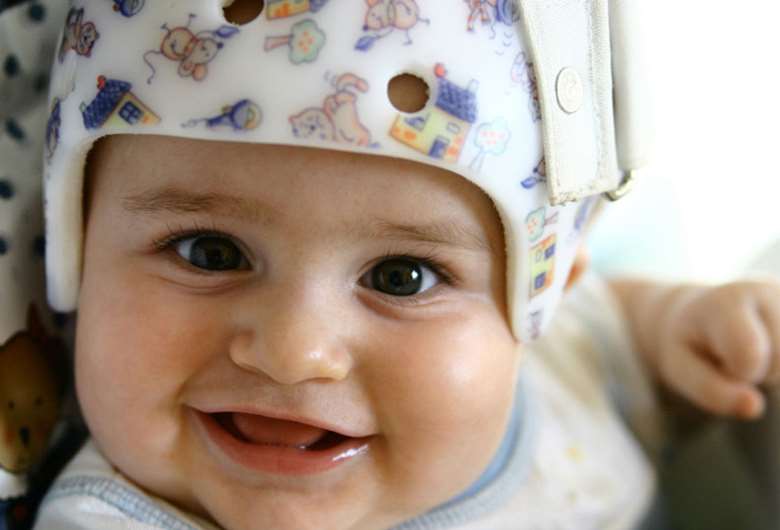Corrective baby helmets have virtually no effect on head shape
Friday, May 2, 2014
A new study discourages the use of baby helmets to correct skull deformation in babies.

The research into the effectiveness of the helmets for children with moderate to severe skull deformation, carried out by the University of Twente in the Netherlands, suggests that using corrective helmets are not much better than no treatment, because of their high cost and side-effects.
According to researchers, the helmets, which can cost around £2,000, may cause side-effects, such as skin irritation, pain and sweating. They also hinder parents from cuddling their baby.
Children with persistent skull deformation, where the skull is slightly flattened on one side or at the back of the head, at six months of age may be prescribed with corrective helmets.
Made from plastic with a foam lining, the helmets are designed to redirect skull growth by fitting closely to a child’s head, but leaving room for skull to grow at the flattened area. It is recommended children wear the helmet for 23 hours a day from six to 12 months of age.
Previous studies have produced conflicting results over the success of helmet therapy. In this latest research, scientists in the Netherlands studied 84 healthy children aged five to six months with moderate to severe skill deformation.
Around half of the children were given a corrective helmet to wear, while the others were given no treatment. After six months, researchers examined whether the helmet therapy or natural course made a difference to children’s skulls. They found little difference between both the methods, with ten of the 39 children who wore the helmet making a full recovery compared to nine of the 40 who received no treatment.
As part of the study, parents whose children wore a helmet were also asked about any associated side effects. While they found that children who received helmet therapy had fewer sleep problems than those who received no treatment, all parents reported one or more side effect related to the corrective helmet.
More than 95 per cent of parents said their child experienced skin irritation caused by the helmet, 24 per cent experienced problems with acceptance of the helmet and 76 per cent reported that their child experienced pain. A further 77 per cent of parents said they felt it hindered from cuddling their child.
The researchers conclude that the study indicates that helmet therapy has ‘no added value’ in the treatment of moderate to severe skull deformation in healthy children.
The study, Helmet therapy in infants with positional skull deformation: randomised controlled trial, is published in the British Medical Journal (BMJ).




